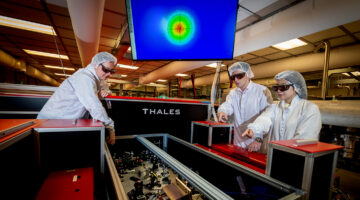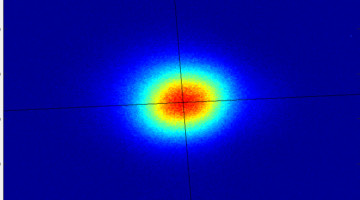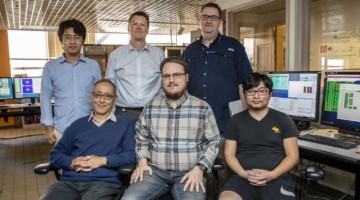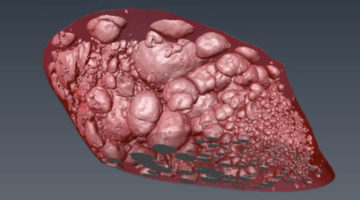The Multi-Office particle Accelerator Team (MOAT) is developing artificial intelligence tools to improve particle accelerators and speed breakthroughs. The collaborative effort is led by Berkeley Lab and is part of the Genesis Mission, a new national AI initiative. Read more »
Machine-Learning Team Receives 2021 Halbach Award
This year’s Halbach Award for Innovative Instrumentation at the ALS went to a team of accelerator physicists and computer scientists who were able to use machine-learning techniques to solve a problem that has plagued third-generation light sources for a long time: fluctuations in beam size due to the motion of insertion devices. Read more »
Machine Learning Helps Stabilize Synchrotron Light
Researchers showed that machine learning can predict noisy fluctuations in the size of beams generated by synchrotron light sources and correct them before they occur. The work solves a decades-old problem and will allow researchers to fully exploit the smaller beams made possible by recent advances in light source technology. Read more »![]()
![]()
Machine Learning Enhances Light-Beam Performance at the Advanced Light Source
Researchers have successfully demonstrated how machine-learning tools can improve beam-size stability via adjustments that largely cancel out these fluctuations—reducing them from a level of a few percent down to 0.4 percent, with submicron precision. The demonstration shows that the technique could be viable for scientific light sources around the globe. Read more »
PepsiCo Explores Future Food Products at the ALS
Global food and beverage giant PepsiCo has been using ALS tomography beamline 8.3.2 to understand more about the chemical structure and behavior of their starch-based snack foods, with the goal of creating a whole new category of snacks that consumers cook at home in their own microwaves. Read more »![]()




